It can be hard to be a woman in gaming/in (games) writing/in the world. We all know that! And if you don’t know it, what rock are you living under? But in honor of Women’s History Month, I wanted to celebrate femme resilience, joy, and creativity! Representation matters, both on and behind the screen.
Earlier this month, we highlighted great games made by women. I asked the other femme gamers at The Punished Backlog if they’d be down to write profiles of some of the characters that have meant the most to them. I so enjoyed writing, reading, and editing this list, and I hope you do, too.
– Amanda Tien, Editor
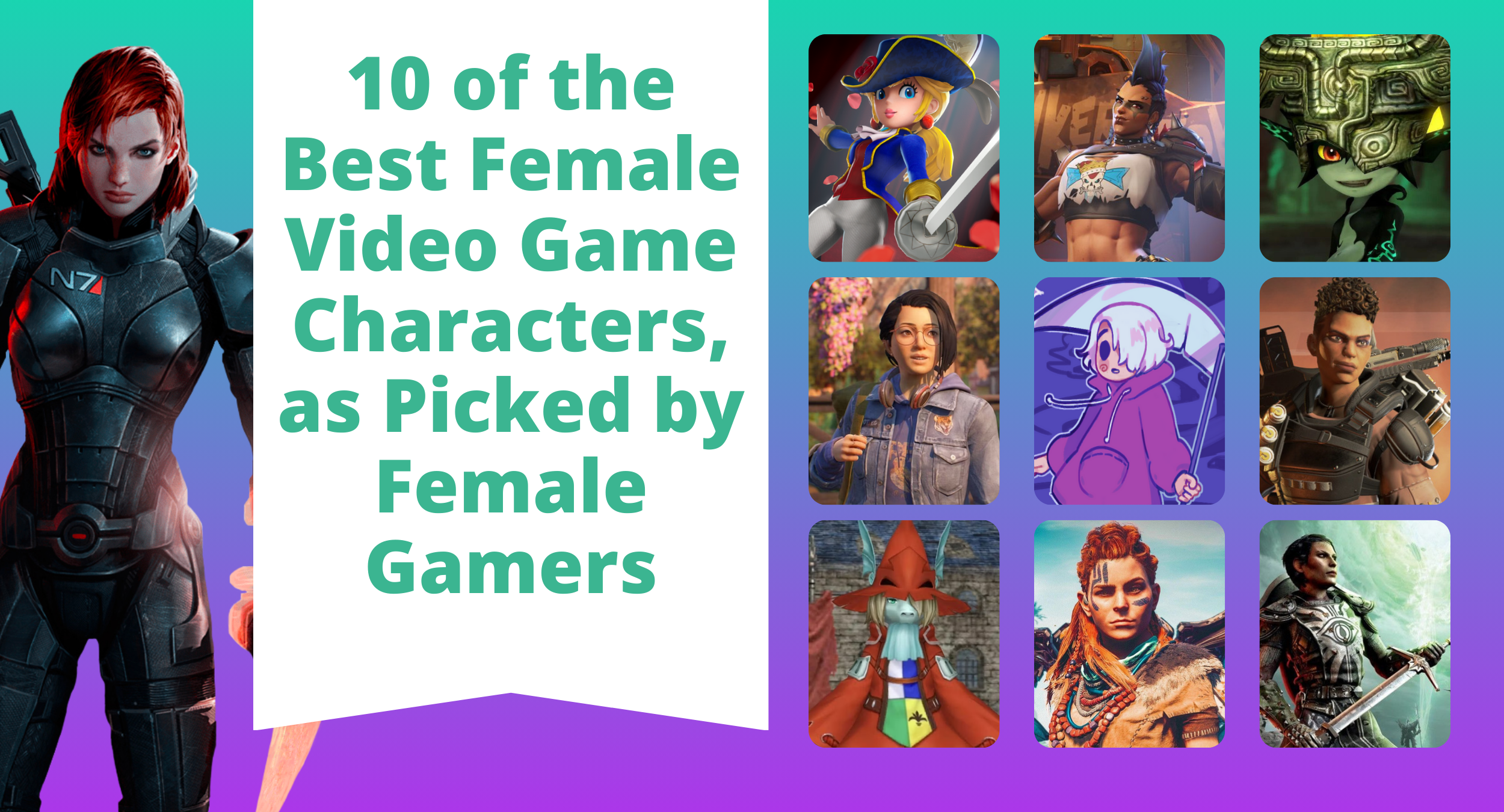
10 of the Best Female Video Game Characters
Editor’s note: This is numbered because it’s a list, not a ranking! And these are certainly not all of the female videogame characters (it’s so cool that we have more than just a few), but these were the female characters that meant the most to us as female-identifying players. It’s worth noting that the racial diversity is still low as all heck as Kris noted, and Krista shared how there’s a lot of room to grow for gender diversity.
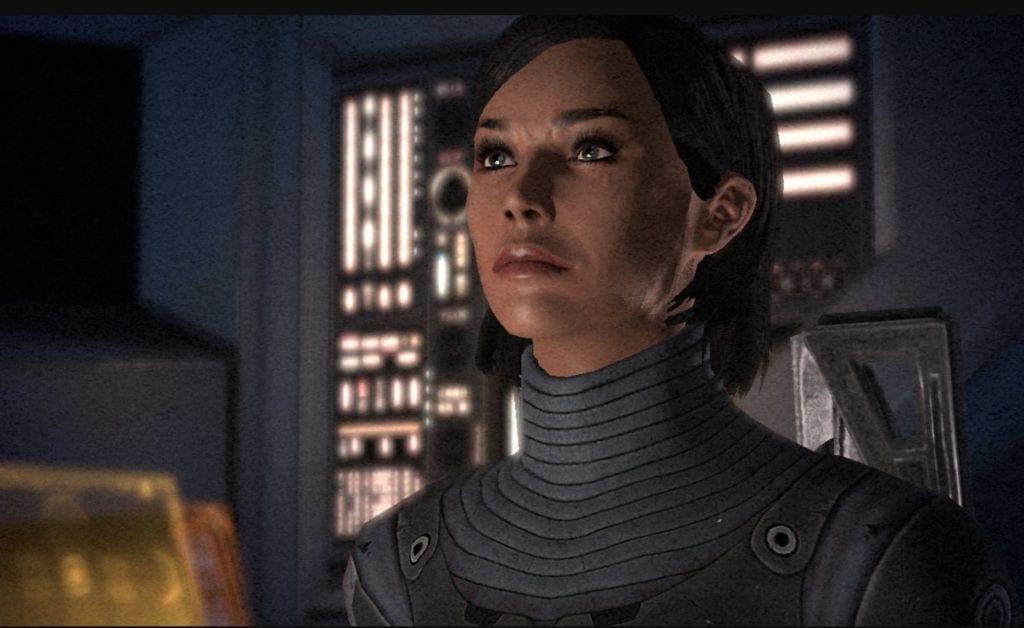
1. Commander Shepard from Mass Effect
When I booted up the first Mass Effect, I saw that I could make a female character with a “Spacer” origin as a child of space naval commanders, reflecting my own nomadic existence as an Army brat. I cried. (I cry a lot at video games.)
My love for “FemShep,” as she’s known in the player base, was total, and as I played the rest of the game (and then series), my admiration was only further cemented. In a rare move for the gun-toting male superstar games of the early 2000s, Mass Effect not only offered a female main character, but one that was entirely equal to her male counterpart. She had unique romance options, but she could do the same combat as the guys. And her voice actor, Jennifer Hale, does such a freaking good job.
Commander Shepard is a complex character no matter what gender you pick, but picking a female version of her adds a layer of nuance to her backgrounds. If Shepard is the only soldier from an alien invasion, being a woman adds a layer of what it means to be a “survivor.” When people don’t believe Shepard’s testimony in a court of law, it echoes reality. While junior soldiers wonder if Shepard can hold their own in a pull-up contest, it’s so satisfying when FemShep wrecks them.
Throughout the original Mass Effect trilogy, Commander Shepard has to deal with hater after hater. And when it’s FemShep, I am not only inspired, but I’m satisfied—she can do things that I wish I could and right wrongs in a way I may never get to. Y’all, she’s just so cool. I don’t know what else to say.
PS: If you want to hear me talk more about Mass Effect, check out Episode 7 of our podcast and skip to 02:43:50.
– Written by Amanda Tien
2. Midna from The Legend of Zelda: Twilight Princess
In The Legend of Zelda: Twilight Princess, Princess Zelda is forced to surrender her kingdom to Zant, a usurper from the Twilight Realm. After Hyrule is shrouded in twilight, Link is captured and turned into a wolf. While trapped under Hyrule castle, Link meets Midna, a sassy, self-serving imp from the Twilight Realm who leads Link out of captivity.
Unlike Link’s usual companions, Midna is shrewd and cynical. She insults Link, taunts him, and shoves him towards solutions without holding his hand. Later in the game, however, we learn that Midna is the true ruler of the Twilight Realm. Zant kicked her out of her home, stole her power, and enslaved her people; it’s no wonder that she’s so jaded and bitter.
Spoilers ahead for end of The Legend of Zelda: Twilight Princess. To skip, scroll to the teal image alerting the end of spoilers.

That said, Midna undergoes the most drastic character arc in the game. She is, after all, the Twilight Princess. Even though we meet her as a cranky imp with a serious attitude problem, Midna grows closer to Link as the game progresses. At the onset of the invasion of Hyrule, Midna has little belief in humanity and is unsympathetic to their suffering under the blanket of twilight.
Around the midpoint of the game, however, Zant mortally wounds Midna by holding her into the spirit Lanayru’s light. During this time, Link must run around Hyrule trying to find a way to Zelda in hopes that she could help Midna. When Wolf Link and the dying Midna eventually arrive in Zelda’s room, however, Midna’s first concern was not how to heal herself or save her people, but how to break Link’s curse and save Hyrule.
At this moment in time, we see that Midna has grown to care for Link and his people too. Zelda catches on to Midna’s true identity and sacrifices her life energy to heal Midna in spite of Midna’s desperate protest. After that, Midna did not mourn Zelda—it would be out of character for her to cry about Zelda’s presumed death—but she hops onto Wolf Link’s back with a renewed vigor for their quest.
When I first played Twilight Princess, my seven-year-old brain read Zelda dying to save Midna as a romantic gesture. Since then, I’ve seen Midna as somewhat of a queer icon. She is a powerful woman whose journey from scorned exile to gracious, selfless leader makes her an even more compelling character. She sacrifices herself in an effort to defeat Ganondorf towards the end of the game, and even sheds a tear when she leaves Link to return to her own realm.

I love Midna because her story is a stark reminder that you can be an independent woman with a strong personality and still accept help, be caring, and show weakness. Her character had a strong impact on me as a young child that I still hold with me as an adult today, and I think everyone can learn from her if they pay attention.
– Written by Alexia Dahlin
3. Junker Queen from Overwatch 2
Junker Queen embodies a strong and confident femininity that I both admire and envy. My love for her comes particularly from “The Wastelander” short released by Blizzard shortly before she was added to the game. She showcases strength, compassion, and a desire and method to protect her own peace that I could only hope to reflect in my own actions.
From the very beginning of the Overwatch 2 short film, we see how Junker Queen’s past mentally torments her. It starts with a nightmare of her past and the betrayal and pain her family went through. Her body instinctively readies a weapon as she wakes up gasping for air, ready to take on any threat in sight.
As someone with CPTSD, it’s a feeling I know all too well and it can easily become crippling. However, Junker Queen pushes past the emotions bubbling up inside of her to continue on the path she has taken. This is an undeniable strength that many have tried and failed to achieve, and she makes it look much easier than it is. She has experienced unimaginable pain, faced it head-on, and created a life that accepts the pain but is not hindered by it. While her physical strength is great, it is this mental fortitude that make her a woman worthy of admiration.
While I already greatly admire this part of her, the way that she chooses to live her life emphasizes this fortitude. In particular, I appreciate the way that she does not just forgive, forget, and go on her merry way. Instead, she takes revenge on the man who harmed her family by defeating him, taking his place as the leader of Junkertown. Not only that, but she resigned him to the same fate of exile that he had given to her family when she was just a little girl. It was a calm and powerful display that can only be described by the phrase, “Hell hath no fury like a woman scorned.”
However, her eye-for-an-eye behavior does not detract from the compassion she shows in the short. When joining the fight to become the next ruler of Junkertown, she makes sure to not do any actual damage to her opponents even when she has the opportunity to do so. She does give reason for her actions by saying that she wants people like them on her side when she becomes queen. However, towards the end of the short, she risks her life and her chance of becoming ruler to protect one of the other combatants from death. Her actions show both strength and compassion that cannot go overlooked.
It is her compassion, her unwavering strength, and her drive to continue going that make Junker Queen one of the most meaningful female game characters in my life.
– Written by Krista McCay
4. Princess Peach from Princess Peach Showtime!
Princess Peach, initially introduced as Princess Toadstool in 1985, is arguably one of the first female icons in modern gaming, especially for someone like me, a millennial who grew up playing titles like Super Mario Bros. and Mario Kart 64. Peach was always my favorite because she was the only girl in some of my most beloved games. Despite being marketed as the “damsel in distress,” the princess has slowly (but surely) become a gaming girlie icon, and I am here for it.
In 2023’s The Super Mario Bros. Movie, fans of the decades-old franchise finally saw a different side of Princess Peach. We learned about her backstory, namely that she was abandoned in the Mushroom Kingdom as a baby and raised by the Toads, who ultimately crowned her as their princess. We also saw Peach wear pants, ride a motorcycle, and be the one to rescue Mario in his moment of distress. This was a total 180 from even 2017’s Super Mario Odyssey, where the Peach we saw was kidnapped by the evil Bowser so he can marry her. Spoiler alert, but at the end, she was once again saved by Mario. While it’s perfectly fine to see Peach have this moment, it’s really nice to see her be the rescuer for once. In the words of William Cowper, “Variety is the spice of life.” Variety is what we want for our beloved princess.
Now, in this month’s release of Princess Peach Showtime!, we see a bolder, more independent side of Peach as she stars in her own game. In the brand-new title, the princess is called to save the day after a tragedy occurs at the Sparkle Theater. As she steps behind the curtain, Peach has the ability to transform thanks to her helper Stella. In the game, we’ll see our femme icon as a figure skater, thief, sword fighter, kung fu master, and more.
I’m so excited to see different sides of Peach as she’s normally been “the girl in the floofy dress.” This is also a total refresh from her last game, Super Princess Peach for the Nintendo DS, where the game’s mechanics were dependent on Peach’s emotions. Talk about stereotypes!

While Princess Peach Showtime! probably won’t be the Luigi’s Mansion 3 treatment some of us may have been looking for in terms of gaming excellence, it’s refreshing to see our lovable femme be the leader in her own story for the first time in 19 years. Even though the game is geared toward a younger audience, let’s hope it sees much success and puts Peach on the path to solo stardom that she deserves.
– Written by Allison McDaniel
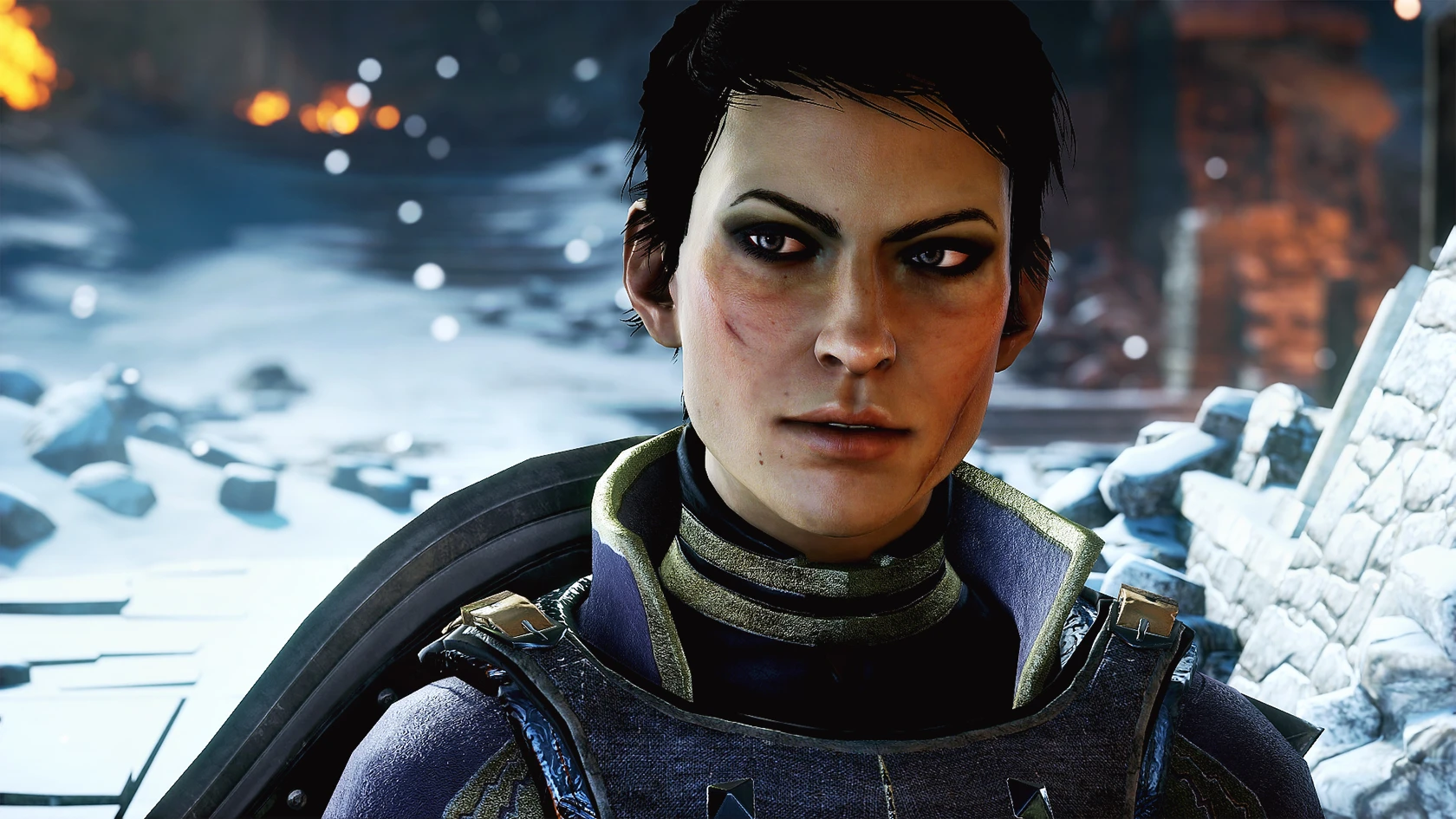
5. Cassandra from Dragon Age: Inquisition
When I think of Cassandra Pentaghast, two descriptions come to mind: the strong-willed Seeker of the Chantry and avid reader of the romance novels Swords & Shields. Among Dragon Age’s wide ensemble of amazing femme characters, Cassandra is one of my favorite companions. She’s a blunt, brash warrior, but she’s also soft, kind, and a bit dorky. I also can’t help but relate to her constant exasperation with, well, nearly everything, and she fully gets the fact that when frustration can’t be put into words, all you need is a disgusted noise to express everything perfectly.
Introduced in Dragon Age II, Cassandra’s tough-as-nails personality and unwavering resolve were already on full display as she interrogated Varric about Hawke’s whereabouts. It’s fitting that in Inquisition, the Inquisitor is on the other end of her questioning when we awake as the prime suspect following the Conclave’s explosion. Then, after all the hubbub with the breach and monsters, Cassandra established the Inquisition with three firm goals: close the breach, find those responsible, and restore order. That’s all to say: Cassandra is a fiery, driving force from the get-go, and honestly, she served main-character energy more than my Inquisitor in those opening moments.
I find it inspiring how Cassandra isn’t one to shy away from action or leadership. With each decision she makes, it’s clear she cares deeply about the state of the world she inhabits, and she can’t sit idly by waiting for someone else to take the reins. Not only does she believe in herself to carry out her plan, but she gives herself permission to act instead of waiting for approval.
As someone who struggles to give herself the freedom to take leaps or risks, I respect that Cassandra continues to do it even when she makes mistakes. And as much as she barrels ahead toward her goals, I also appreciate the moments where she acknowledges that she could be wrong, making space for other possibilities and allowing her and the Inquisitor to build a friendship even when they don’t see eye to eye.
While I absolutely admire Cassandra’s strength, power, and drive, I also love that she’s as soft as she is tough, reminding us that strength doesn’t have to come at the expense of vulnerability—you can be both. From her admiration of her late brother to her uncertainty that the Seekers can be rebuilt, she often opens up to the Inquisitor about her thoughts, regrets, memories, and feelings. My favorite interaction in Inquisition has to be the one where we discover that Cassandra is a big romantic, being a huge fan of Varric’s Swords & Shields series, which she calls “terrible and magnificent” (I have plenty of titles on my shelves that would fit that description).
I think Cassandra Pentaghast embodies the power of “and.” We can be fierce and strong, and soft and romantic. We can take action and make mistakes. We can punch Varric and be big fans of his novels. All in all, Cassandra is one of the best female video game characters who reminds us to make space for all parts of ourselves.
– Written by Alyssa Payne
6. Bangalore from Apex Legends
Apex Legends is a free-to-play shooter survival game where, typically, 60 players in groups of three try to kill each other in an epic battle royale. Players choose from a roster of characters that have unique abilities. I’ve previously written that Apex Legends is the feminist future of first-person shooter games, and I stand by that essay. It helps that one of the very first characters at launch was Anita Williams, a.k.a. Bangalore.
From the opening roster of Apex, Bangalore was the most aggro and powerful character. To see a Black woman occupy that role instead of a big white guy was so cool. Bangalore is equal parts destructive as she is strategic. She has a tactical smoke grenade that can shield herself and allies, but she also has an epic ultimate of waves of missiles launching called Rolling Thunder.
I grew up in military communities, and Bangalore reminds me of some of the bad ass women I knew. When I first started playing Apex, I stood up with excitement and shouted when I heard some of her catch phrases that echo real world slang (“FNGs always go first” and “watch your six”), including referencing the real world U.S. Marines slogan of “Semper Fi.”
While Bangalore isn’t the flashiest of the ever-growing Apex roster, she’s one that feels most of our real world, making her a larger-than-life baddie.
– Written by Amanda Tien

7. Alex Chen from Life is Strange: True Colors
I avoided playing Life is Strange: True Colors for a long time. I’m a big fan of the Life is Strange series, which features young people with some kind of mystical power that can aid or harm them as they go through some really traumatic stuff. Alex Chen is a young Asian American woman with an almost debilitating level of empathy that’s just moved to a new town. I’m a young Asian American woman with an almost debilitating level of empathy that is frequently moving to a new town. Too real lol.
But I’m so glad I finally built up enough serotonin to play it as part of our site-wide backlog challenge, because not only is Life is Strange: True Colors the best the series has been since its beginning, but Alex Chen is an absolute delight to inhabit.
Alex is clever, thoughtful, adventurous, and cool. She has good taste in music, plays along in D&D, and has a sick denim jacket with patches. But she also makes assumptions, holds grudges, and struggles to trust. Alex and the other townspeople of Haven feel real. They are flawed. They make mistakes. But they also get back up. Alex goes from someone who is desperate to fit in to being someone brave enough to stand up for her beliefs, even if it turns other people against her. Her final “boss fight” of standing up for herself made me cry.
As I tried to provide Alex her own best happy ending, I began thinking of what my own best happy ending looked like. Who did I want to be that I wasn’t already? Who could I love better? How could I be kinder to myself? What painful truths could I begin to accept? Alex faced these questions, and she made me feel that I could, too.
– Written by Amanda Tien

8. Freya from Final Fantasy IX
Freya doesn’t get a lot of story space in Final Fantasy IX (other characters like Steiner and Vivi received more fleshed-out arcs) but she’s a character that has stuck with me, especially after replaying IX as an adult. When I played it for the first time as a kid, I don’t think I really grasped the level of heartbreak she went through, and as such, didn’t truly appreciate how strong Freya is, so I’m here to make my amends. Freya Crescent is perhaps one of the most resilient female characters in video games, deserving much more screen time in the event that we get a Final Fantasy IX remake in the same vein as VII (please, Square Enix, I’m begging you).
Loyalty, duty, and memory are all major elements in Freya’s story, as she’s on a quest to avenge the destruction of Burmecia and find her lost love Sir Fratley. We meet her for the first time in a pub where she asks Zidane if he forgot her name, a seemingly insignificant question that foreshadows tragedy to come. When Sir Fratley, the man she’s dreamed of finding for years, saves Zidane and co. in Cleyra, Freya is elated. But relief is soon replaced with despair when Fratley reveals that he has no recollection of her or their relationship. Although Freya insists he must be joking, the terrible truth settles in. Freya’s true quest isn’t finding Sir Fratley after all, it’s continuing forward after losing everything she loved. And she does just that, forging ahead with hope and strength that I deeply respect.
I wish Square explored Freya’s emotions more instead of having her go through a full range of feelings in a single scene, at which point she ends up saying she’s just happy Sir Fratley is alive. But I find it admirable how she can find a glimmer of good amidst the cloud of loss and grief. I don’t necessarily think we all need to power through terrible moments in our lives, but Freya shows us that we can keep going. Similar to Cassandra (see #5), I admire her unwavering resolve.
The quote associated with Freya’s character is, “To be forgotten is worth than death.” The fact that she goes through that very thing, and survives it, makes her one of the strongest female characters in my book.
– Written by Alyssa Payne
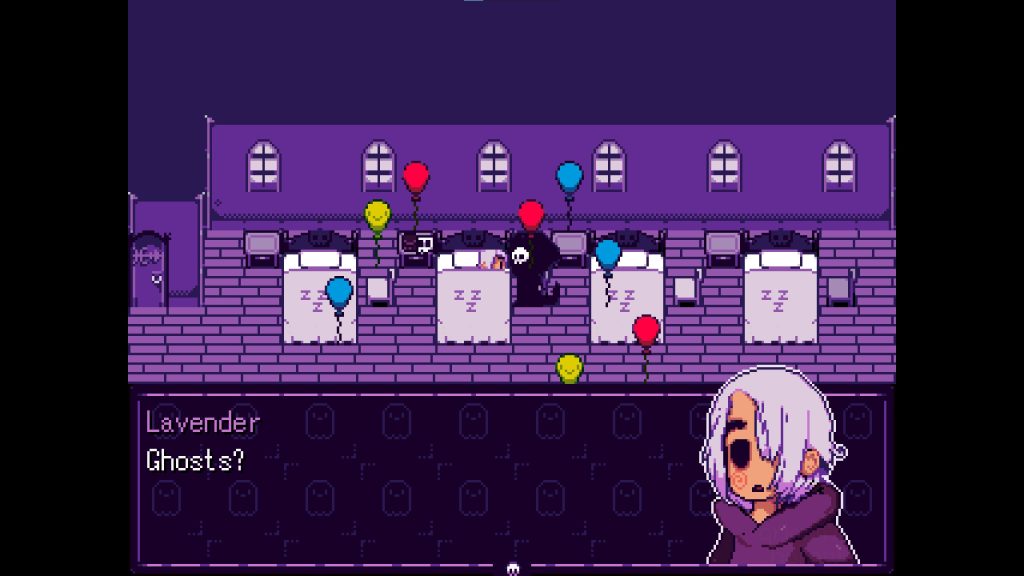
9. Lavender from Grimm’s Hollow
Grimm’s Hollow is a short and spooky free RPG game where you play as the newly deceased Lavender. After dying in an unknown way, there are only two things on Lavender’s mind—the fact that she is now a Reaper and her desire to find her brother, Timmy. Both her ability to adapt to her sudden circumstances and how she fights for her brother make her one of the best femme protagonists I’ve ever played.
When Lavender is suddenly brought into the world of Reapers, she discovers what is going on, analyzes her surroundings, and makes the best decisions she can with what she has. Even though Lavender is most likely afraid for the future, especially since she hasn’t even been able to process her own death, she pushes it aside to complete the task at hand. She explores the nearby caves valiantly in her quest to find her brother. When she does find him and hears his story, she dedicates herself to restoring his soul and returning him to the living world. When confronted with new enemies, she is able to take a moment and analyze their abilities and weaknesses to take them down more quickly. It’s a type of strength that anyone would be proud to have.
While her adaptability is her strong suit, the way she cares for her brother makes her one of my favorite characters. The story behind the two of them is bittersweet. As you progress in the game, you learn that Lavender becomes the caretaker for her younger brother after multiple hardships in the family. She helped him with homework, walked him to school, and really anything else he needed. She chose to do all of this at the expense of some of her own life. Even in death, she did everything she could to keep him safe. I don’t want to romanticize the hardships she went through, but her actions deserve a lot of respect.
Of all of the female characters I’ve played as, Lavender is the one that fills me with the most emotions. The way she fights for her brother in combination with her own struggles makes me cry every time I play the game. Part of what makes her so special is that the developers never made her a perfect person. She is unable to ask for help from others, which can lead to her brother’s soul being lost forever. It also lead to some of the hardships she experienced in her own life that were never resolved. This doesn’t make her any worse, but rather makes her feel more human.
All in all, she truly deserves a spot on the list of the best female video game characters.
– Written by Krista McCay
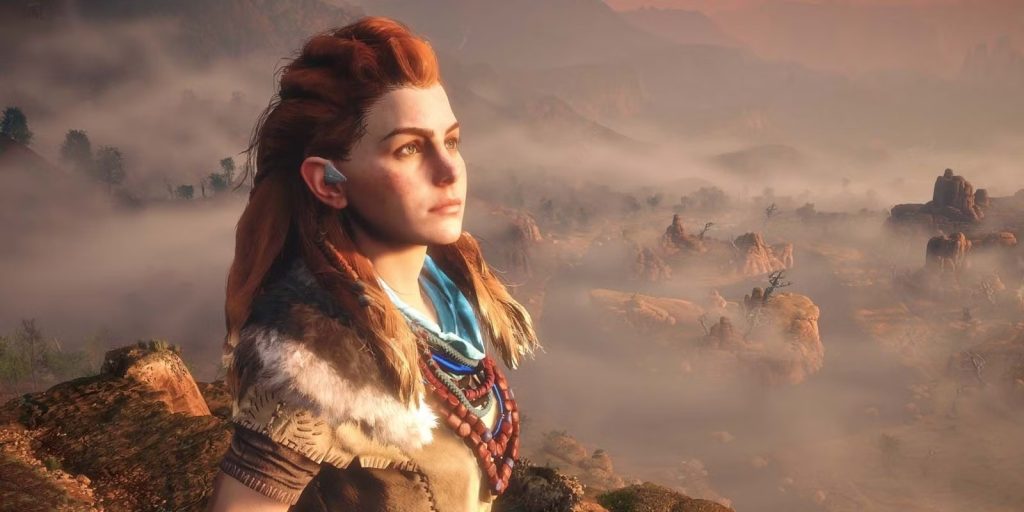
10. Aloy from Horizon Zero Dawn
My jaw dropped when I saw the first trailer for Horizon Zero Dawn. Redheaded girl played by the voice-acting queen Ashly Burch fighting robot dinosaurs?! Oh my. I NEEDED it. The one downside: I did not have a PlayStation 4.
I must’ve been talking about it a lot because, as a birthday gift, my parents took me (an adult woman) to a Best Buy (under the pretense of looking at printers) and got me the console and Horizon Zero Dawn. Reader, I could not believe this! I think I texted my parents every day for two weeks saying thank you and sending screenshots of what Aloy and I were up to.
I have so much affection for Aloy. She grew up as an outcast, and I often knew what it felt like to be the new kid. She is always looking for answers, to improve herself, to make something better than what she’s known. Despite having really no reason to believe it, Aloy has hope for the world. She is dogged in her pursuit of justice, equality, and peace. While the sequel has some plot flubs, it’s still a shining example of Aloy’s strong character that was defined in the first game. She’s not just a great female character, but a great protagonist, period.
Over the course of Horizon Zero Dawn, Aloy comes to accept that she can’t do everything alone. She learns how to balance independence with connection. When she’s disappointed in herself or others, Aloy lets herself experience that grief and then gets back up and tries again. She’s incredibly brave, diving into caverns and crossing deserts. She’s a fierce warrior while also being a big ole nerd (she reads history, listens to audio logs all day, and is constantly tinkering with makeshift tech). Aloy is self-sufficient in a way that I dream of being in the inevitable robot dinosaur environmental apocalypse, or just getting through life on Earth as I know it.
Unlike other AAA video games where it seems women’s only fate is to suffer, Aloy not only survives, but, eventually, thrives. Get it, girl.
– Written by Amanda Tien
Who Are Your Favorite Female Video Game Characters?
Let us know in the comments!


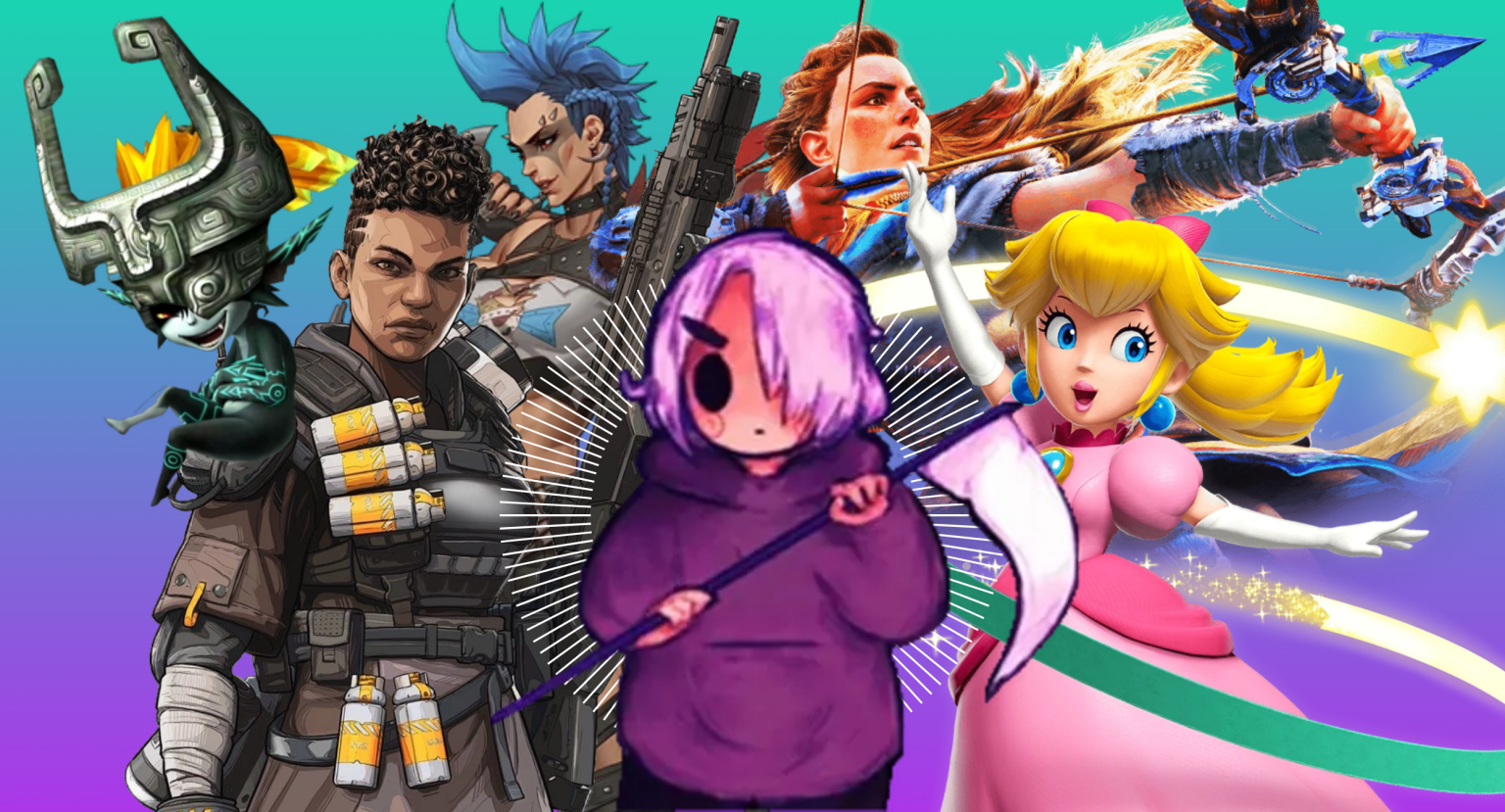
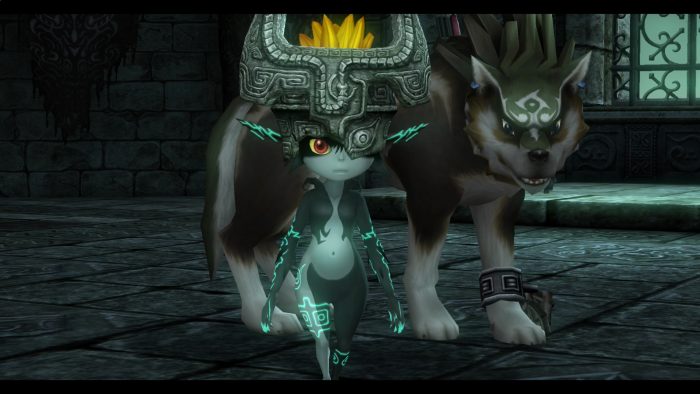
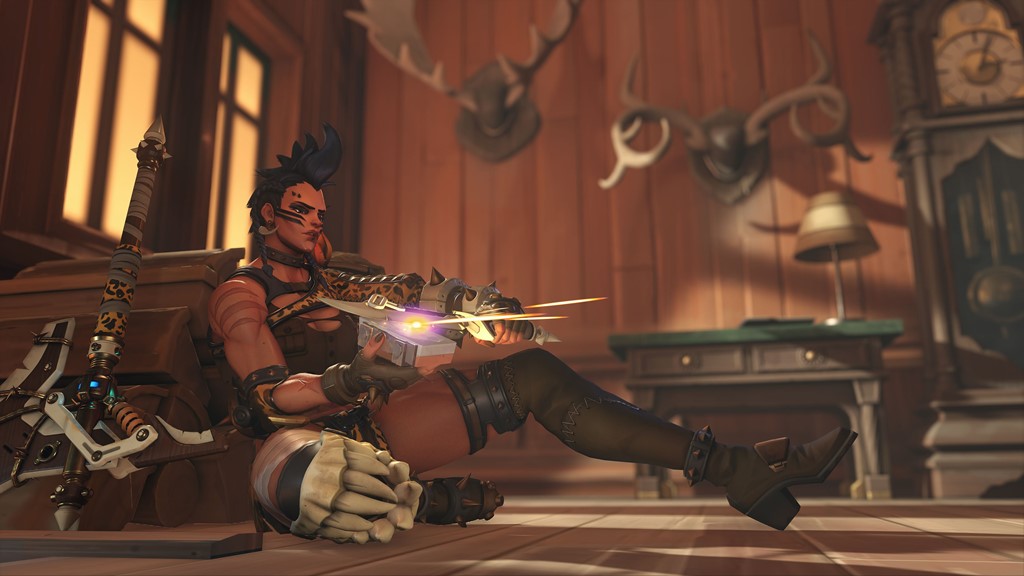

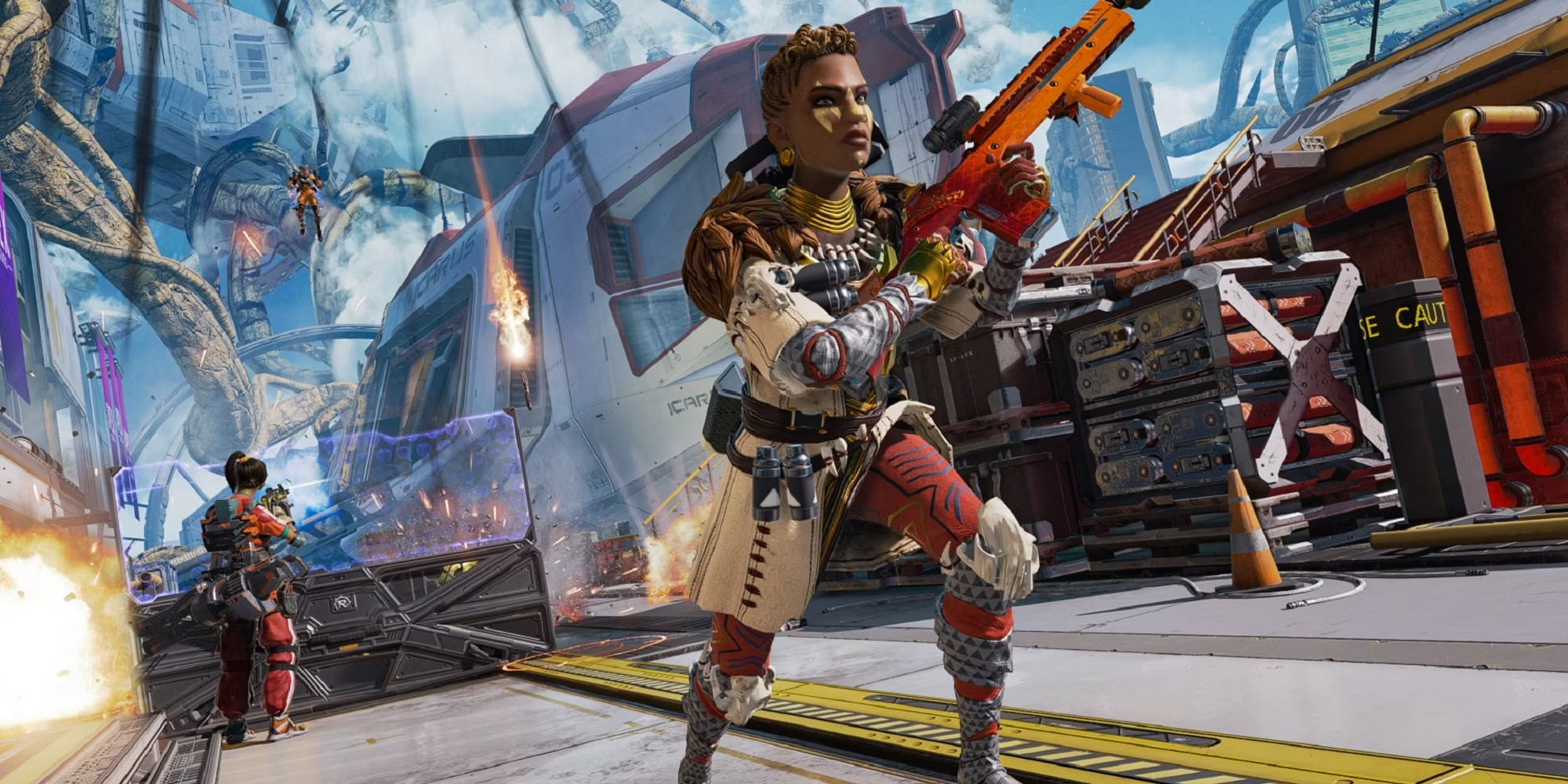








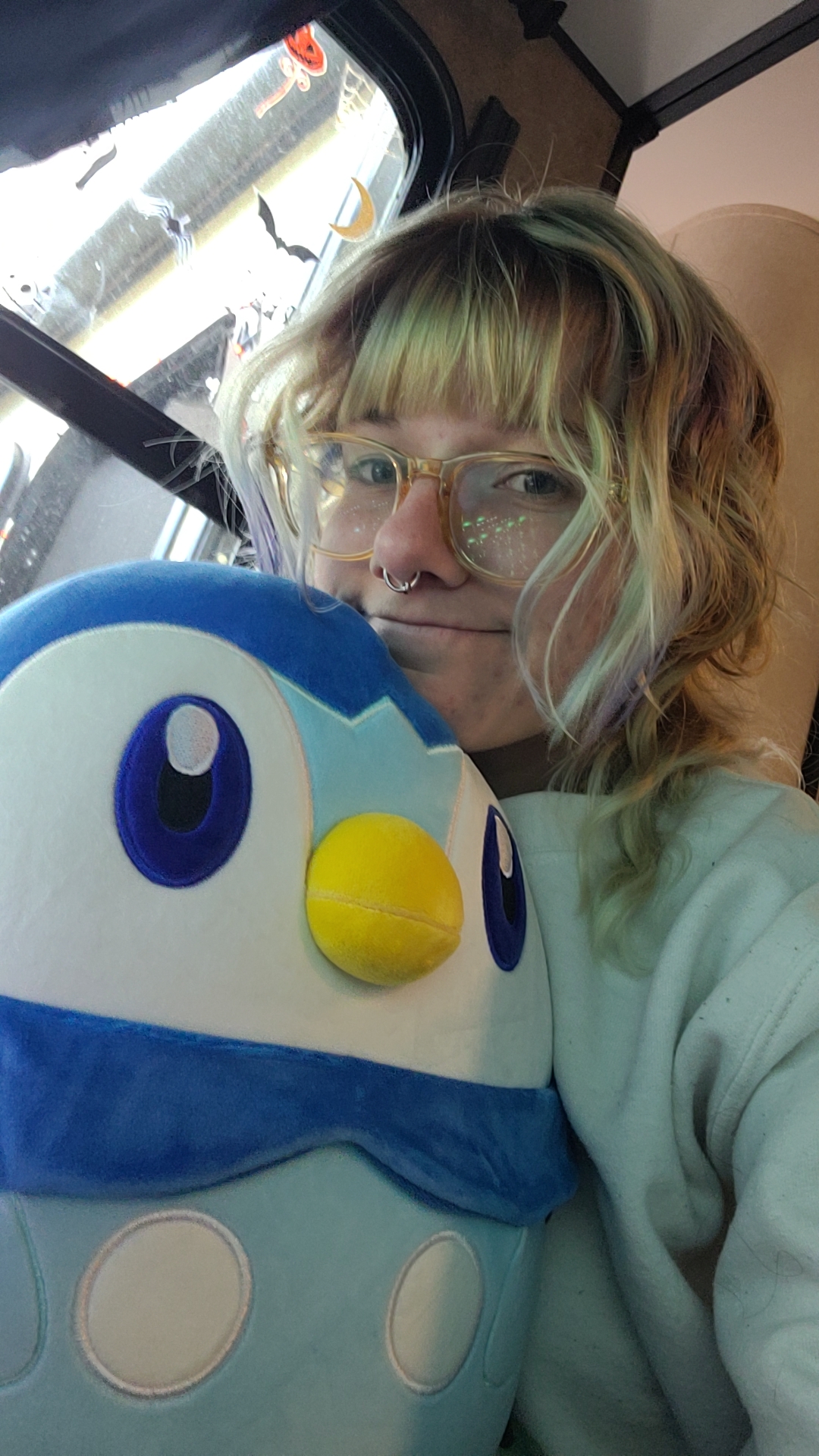














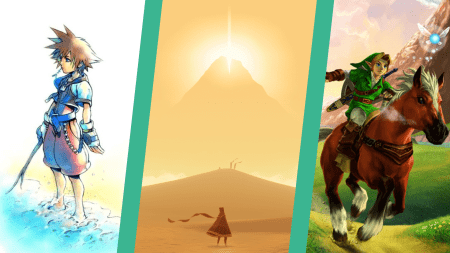

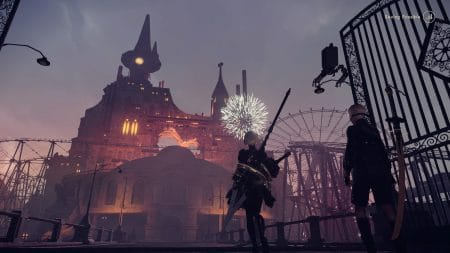
i limited myself to 4 lol but i also was seriously considering writing about Karlach from Baldur’s Gate 3, Kassandra from Assassins Creed Odyssey, Valeria from Boyfriend Dungeon, Saga Anderson from Alan Wake 2, Samus Aran (I’ve never played any of the Metroid games but she was my first pick in Smash), Jesse Fagen from Control, and Nancy Drew (who I’ve written about extensively lol). what a lovely problem to (finally) have.
Stella from Spiritfarer!!!!
Also +1 for FemShep
and I would say Samus if I had ever finished the Metroid Prime game on Wii…